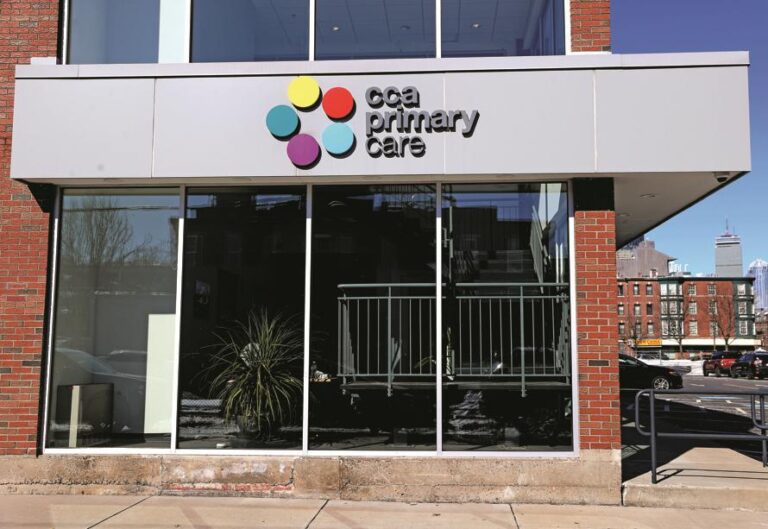Commonwealth Care Alliance will be acquired by Ohio-based nonprofit CareSource, in a move that will preserve coverage and services for nearly 50,000 disabled, elderly, and low-income residents of Massachusetts.
As part of the transaction, which closed Monday, CareSource will inject $400 million into Commonwealth Care to bring its cash reserves up to required levels and prepare its systems for the merger.
“I think it’s going to be something that Massachusetts is going to be very, very proud of,’’ Erhardt Preitauer, chief executive of CareSource, said in an interview about the merger.
The acquisition — which also prompted the departure of CEO Chris Palmieri — is a dramatic about-face for a storied Massachusetts insurer and medical service provider. Commonwealth Care has long served people simultaneously eligible for Medicaid, which serves mostly low-income people, and Medicare, which helps largely people over 65 and those with disabilities.
For months, the organization had been financially floundering, with its reserves short by $217 million by August, so low that the state paused enrollment in both of its Massachusetts insurance products in November.
Commonwealth Care had initially struggled to find a buyer, with the state going so far as to put out a request for proposals to find companies that could help step in if Commonwealth Care were to collapse.
Preitauer credited the state’s involvement with helping streamline the process, helping with required approvals and providing “risk mitigation.’’
“The state’s support is what really helped us to jump into a very quick process,’’ Preitauer said.
The state also sweetened the deal, support which included an agreement for the state to limit any of the insurer’s potential losses for two years, according to the state’s Department of Health and Human Services and its public insurance arm, MassHealth. The agencies did not say how much MassHealth might spend to do so.
Additionally, if CareSource earns more than a 2 percent margin over the next two years, the funds would go to repay money MassHealth said it is owed from Commonwealth Care Alliance. MassHealth didn’t respond to questions about why CCA owed the state money or how much.
“Our team within the Healey-Driscoll Administration has worked tirelessly to avoid a disruption in health care services for Massachusetts residents, and we can all breathe a little more easily as we welcome mission-driven CareSource to our state,’’ said Kate Walsh, secretary of Health and Human Services, in a statement.
The bulk of Commonwealth Care’s insurance operations will be folded into the Ohio organization, including two Massachusetts primary care physician practices, a component Massachusetts regulators were particularly concerned about maintaining. Additionally, CareSource will acquire InstED, a Commonwealth Care subsidiary that sends paramedics into members’ homes to keep them out of the hospital.
All 1,682 of Commonwealth Care’s employees will join CareSource, though it is unclear how many of those employees will have long-term jobs with the company. Preitauer said starting next week, senior leadership at Commonwealth Care will be meeting with CareSource to decide what the organization looks like moving forward. But the goal for members is to minimize disruption.
“Might some things change? Probably,’’ Preitauer said. “We’re not going to leave it exactly like it is, but we’re not coming in with a big hatchet.’’
With the solvency issues resolved, the state’s Medicaid program allowed the insurer to reopen enrollment for two of its products: one for disabled individuals under 65 called One Care and a product for low-income seniors, Senior Care Options. Under both plans, Medicaid and Medicare provide Commonwealth Care a set amount of monthly money per member, allowing the organization greater flexibility in funding care.
Palmieri resigned from the organization this week, as has almost the entirety of the board, though former board chair David Klein will stay on with Commonwealth Care’s parent organization to wind down operations in other states, including selling two Michigan-based organizations that worked with physicians to coordinate health insurance and services. CCA board member Jim Wice will become part of CareSource’s board.
“As we searched for a strategic partner, CCA prioritized finding an organization that shares our values, and would enhance care for those we are privileged to serve,’’ Klein said in a statement. “CareSource is the ideal partner for the long-term sustainability of CCA, with decades of expertise in managing complex care and a unique member-centric focus.’’
It was unclear whether Palmieri received a more than $2 million payment he had negotiated in the event the organization was acquired or his multimillion-dollar severance agreement. Both were set to increase Palmieri’s total compensation to more than $6 million — three times higher than the $2 million he had most recently reported receiving in 2022. Palmieri couldn’t be reached for comment, but in an email to employees seen by the Globe, Palmieri said he would leave “as a part of a long-planned transition.’’
Preitauer said the entirety of his company’s $400 million investment was going to the assets it acquired, not to Commonwealth Care’s parent organization, and anything involving the former CEO’s compensation had been settled prior to his company’s acquisition.
“Whatever agreements he had with his board, that’s not something that I saw or got involved with. That is outside of our scope,’’ Preitauer said. “Whatever happened happened before we closed.’’
The acquisition adds to the more than 2 million members that CareSource manages in 13 states, largely focused on people with government insurance, including Medicaid, those dually eligible for Medicaid and Medicare, and those who receive state subsidies but purchase insurance from state-based insurance markets.
Disability advocates largely applauded the deal while urging CareSource to develop its plans alongside the disability community.
“When CCA was accountable to the disability community in shaping its business model and model of care, it was a nationally recognized exemplar that provided outstanding services to its members,’’ said Harry Weissman, executive director for the Disability Policy Consortium, an advocacy group. “When CCA turned away from that level of member involvement, it failed. Going forward, we are looking forward to helping CCA succeed as it once did, for the benefit of the disability community.’’
While some have suggested that Commonwealth Care’s expansion contributed to its financial problems, Preitauer said the expansion wouldn’t be destabilizing for his organization. The organization has a track record of growth, and a technology platform that he said allows it to scale. Being a nonprofit has also allowed the organization to invest in its platforms rather than paying out to shareholders, Preitauer said.
The acquisition and expansion come amid federal uncertainty and turmoil over Medicaid reimbursement rates. Preitauer said while there may be some federal financial pressures, the organization didn’t want to pass up this opportunity.
“We get how special it is. We’re going to do a really good job. And we ask the stakeholders, give us a minute,’’ Preitauer said. “We’re looking forward to being able to earn that [trust] and to show where our hearts are. But we do have a lot of work ahead.’’
Jessica Bartlett can be reached at jessica.bartlett@globe.com. Follow her @ByJessBartlett.

